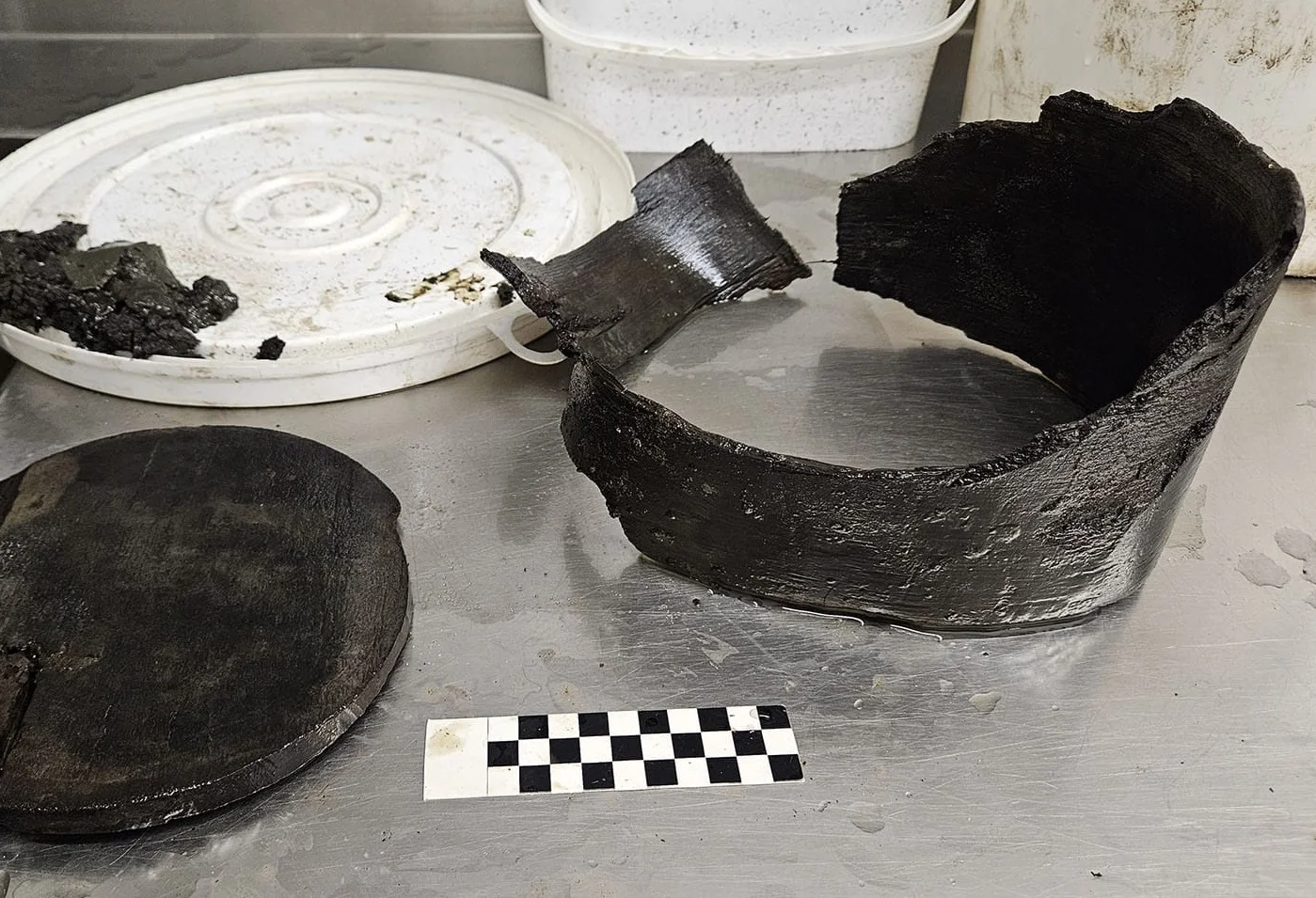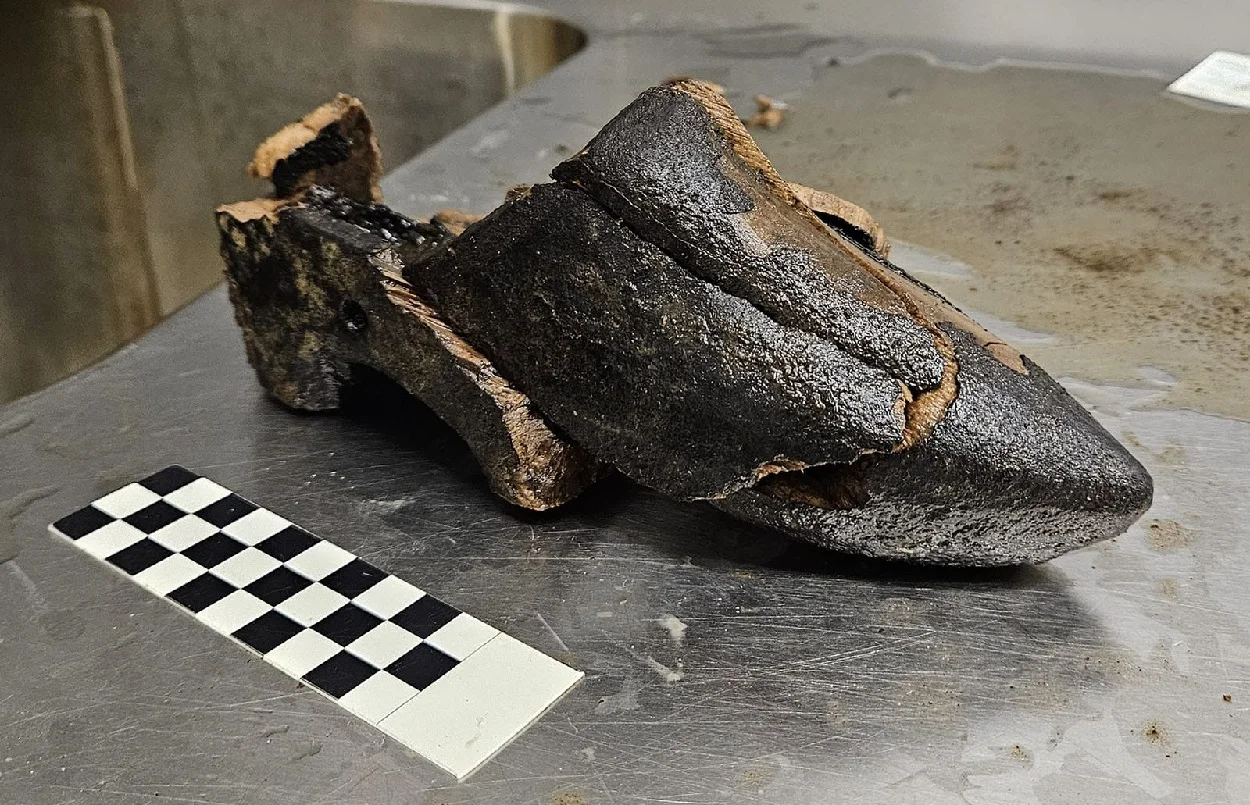Archaeologists excavating in Alkmaar have found a cesspit containing a “time capsule” of objects from the 15th century.
The discovery was made during construction works for an underground waste container in the centre of Alkmaar, a city and municipality in the Netherlands.
Archaeologists have determined that the cesspit was actively used as a toilet and for rubbish disposal between AD 1450 and 1558. After this period, the houses on the site were demolished and the pit fell into disuse.
Excavations have revealed a “time capsule” of objects preserved in the waterlogged, anaerobic conditions of the pit. The most notable find is a wooden clog made from birch, a tree not native to the Netherlands.
City archaeologist Nancy de Jong, said: “In the history of the Netherlands and Belgium, only 44 clogs have been found. Most of them are a lot less old and are in a far less condition.”
According to de Jong, the people of 15th-century Holland practiced a “circular economy,” where everything was reused, melted down, or ultimately burned to heat their homes.
“Most clogs have a rustic, coarse model. But this one is elegant and has a double heel: a kind of city clog,” added de Jong.

Another pit discovery is a rare grain measurer made of thin oak. In the whole of Belgium and the Netherlands, only five fragments of grain measures have been found. Measurers were only known from descriptions and images, making the Alkmaar discovery especially valuable as the first relatively intact example.
The clog and grain measurer will undergo stabilisation, conservation, and further study. Where possible, they will be restored using non-invasive techniques to reassemble their broken pieces, with the aim of eventually displaying them to the public.
Header Image Credit : Municipality of Alkmaar
Sources : Nu





